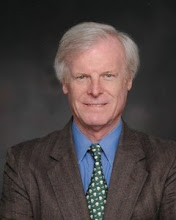Law.com - Capitalism in China Called a 'Work in Progress'
Having just returned Sunday from my third trip to Beijing in less than 18 months, I must agree with most everything stated in this article. However, the situation is so dynamic in China these days, there are really no hard and fast rules and the real need is to be flexible and adaptive in pursuing the numerous opportunities that would seem to exist in China as it moves into the forefront of the 21st Century from Middle-Ages feudalism.
The pace of change in China is so rapid, there are bound to be mistakes, some of which might turn out to be very costly to correct once they are discovered, if correction is possible. One example is the way whole urban areas have been torn down to make way for new construction. Once historic buildings are destroyed, they cannot be replaced, but historic preservation impedes progress, and progress is the main goal these days.
Despite the continuation of the label of the Communist Party, it is in many respects communist in name only. It is an institution that can govern, and that, it seems to me, is its main purpose now governance. It is becoming more capitalist in most respects than most of us would have believed was possible even a few years ago. As an example, in a conversation about a year ago with a senior Communist Party official, he said, "My predecessors ruled with guns. I rule with lawyers." Of course, he might have been trying to impress me as a lawyer, but I think he truly understood the need for progressive laws that fostered creativity and innovation.
Chinese business is very adaptive, and the Chinese people are entrepreneurial at their core. Perhaps the most important trend in China that we need to monitor is the Chinese plan to become the factory of the world. This means there are many opportunities for lawyers in China, both domestic and foreign. China has an emerging legal profession, which is rapidly, achieving a high level of competence. Perhaps some of the best opportunities for lawyers exist in the secondary and tertiary cities rather than in the main cities. The most rapid growth, and the greatest need exist in those cities, but there are virtually no significant bodies of lawyers there. China is reasonably hospitable to foreign lawyers, and probably will be for some time as the need is great and cannot be met domestically.
Tuesday, April 29, 2008
Subscribe to:
Post Comments (Atom)

No comments:
Post a Comment